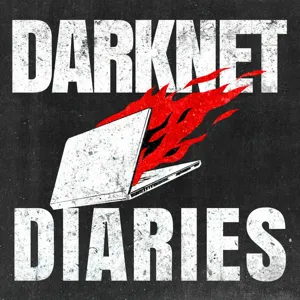Podcast Summary
Chinese Spy Balloon Incident Raises Concerns Over Sovereignty and Chinese Intentions: A Chinese spy balloon entered US airspace, causing concerns over Chinese intentions and US sovereignty. While significant, this is not the first time China has been accused of intelligence collection against the US.
A Chinese spy balloon, which entered American airspace in late January, caused significant concern and speculation before being shot down off the coast of South Carolina on February 4th. The incident raised questions about China's intentions and the ability of the US to protect its sovereignty. However, it's important to note that this incident is not the first time China has been accused of intelligence collection against the US, and more serious breaches have occurred in the past. The balloon, which was the size of three buses and equipped with solar panels and a surveillance payload, was able to maneuver itself and change course while flying at an altitude of 60,000 feet. Despite the US government's claim that it prevented China from collecting intelligence during this time, the balloon's presence above American territory was still a cause for concern. Overall, while the incident was significant, it's important to keep it in perspective and remember that there have been more serious breaches of US sovereignty by China in the past.
U.S.-China relationship: Balloon incident vs. earlier cyber attacks: The discovery of a Chinese surveillance balloon caused a political response, but earlier cyber attacks in 2015 resulted in the deaths or imprisonment of CIA informants and exposed sensitive info of 4 million employees, with far greater impact but less global backlash
The discovery of a Chinese surveillance balloon flying over U.S. airspace in early February 2023 caused a significant political response, but two previous incidents - the hacking of CIA agents in China and the massive breach of personnel files from the Office of Personnel Management in 2015 - were far more damaging to the U.S.-China relationship. The balloon incident did cause a ground stop at an airport in Montana and raised concerns about potential damage if shot down, but federal officials recommended waiting for a safer location. The two earlier incidents, however, resulted in the deaths or imprisonment of 18 CIA informants and exposed sensitive information of 4 million current and former federal employees, potentially aiding China's efforts to gain access to classified information. Despite their greater impact, these incidents did not garner the same level of global backlash as the balloon incident.
Chinese Spy Balloon Over U.S. Airspace: China used a hard-to-detect balloon for spying in U.S. airspace, which was shot down and assessed as a spy plane. The incident underscores ongoing Chinese spying activities and challenges in detection.
China used a surveillance balloon to fly over U.S. airspace, which was shot down off the coast of South Carolina. The U.S. military is currently retrieving the balloon from the Atlantic Ocean to assess its components and gather intelligence. The use of balloons for spying is advantageous for China because they are hard to detect and maneuverable, unlike satellites. Despite China's claims that it was a weather balloon, the U.S. assessed it as a spy plane based on the components found on the balloon. This incident highlights the ongoing issue of Chinese spying activities over U.S. territory and the challenges in detecting and responding to such incidents. The U.S. will continue to monitor the situation and keep the public updated.
Chinese Surveillance Balloon Over U.S. Airspace Strains Relations: The discovery of a Chinese surveillance balloon led to heightened tensions, with potential long-term consequences, and raised questions about the future of U.S.-China relations.
The discovery of a Chinese surveillance balloon over U.S. airspace, which was shot down by the U.S. military, has significantly strained relations between the two superpowers. The maneuverability and military relevance of the balloon's location, along with its advanced spy capabilities, have led the Biden administration to believe it was intended for espionage. Despite China's denial, the incident has resulted in heightened tensions, with potential long-term consequences. China has responded angrily to the U.S. military's actions, and the situation has raised questions about the future of U.S.-China relations. Although the balloon incident may not fully break ties between Washington and Beijing, it has certainly added fuel to the existing tense relationship. Furthermore, while the balloon incident has received significant attention, it's important to note that China continues to gather intelligence through satellites as well. Overall, this incident highlights the ongoing geopolitical tensions and the importance of surveillance and intelligence gathering in international relations.
Chinese Surveillance Balloon Over U.S. Sparks Controversy: The discovery of a Chinese surveillance balloon in U.S. airspace has ignited public backlash and political controversy, symbolizing perceived Chinese aggression and testing Biden's leadership.
The discovery of a Chinese surveillance balloon over U.S. airspace has sparked significant public backlash and political controversy, despite the administration's claim that they were able to collect intelligence on the balloon and prevent it from gathering information on the U.S. The incident has become a symbol of perceived Chinese aggression and a test of President Biden's strength and resolve. The geopolitical tensions between the U.S. and China, as well as China's past actions such as spying and aggressive trade practices, have fueled the reaction. The incident has also been used as a political football, with both parties criticizing the administration's handling of the situation. The surprise and concern over foreign surveillance, as well as the easy political capital to be gained from criticizing China, have contributed to the intense reaction.
Chinese Spy Balloon Incident Causes Geopolitical Tensions Between US and China: The Chinese spy balloon incident has caused significant geopolitical tensions between the US and China, leading to increased scrutiny and potential political fallout for both countries. Repeated occurrences during previous administrations raise questions about deliberate actions by China.
The recent incident involving a Chinese spy balloon entering US airspace has caused significant geopolitical tensions between the US and China, leading to a downturn in their relationship in the short term. The timing of the incident, with Secretary Blinken's planned trip to China, has added fuel to the fire. While China claims the balloon was an accident, its repeated occurrence, even during the Trump administration, raises questions about deliberate actions by China to provoke controversy. The long-term impact on the US-China relationship remains uncertain, but it is clear that this incident will lead to increased scrutiny and potential political fallout for both countries. The incident also highlights the ongoing challenges in managing intelligence and security threats in an increasingly complex global landscape.
US-China tensions escalate over balloon incident: Despite the balloon incident, it's unlikely for a full-blown war between US and China. Tensions will continue due to issues like human rights abuses and territorial disputes.
The US-China relationship is experiencing increased tensions, with both countries engaging in escalating actions and rhetoric. The latest incident involves a Chinese surveillance balloon allegedly violating American airspace. However, despite the political uproar and posturing, it's unlikely that this incident will lead to a full-blown war between the two superpowers. Instead, the US-China relationship will likely continue to deteriorate, with ongoing issues such as human rights abuses against the Uighur population in Xinjiang and territorial disputes in the Taiwan Strait fueling tensions. While the US and China engage in extensive spying on each other, the balloon incident has received significant attention due to its visibility, but more covert actions and issues may be just as significant and worthy of concern.
A reminder of the larger geopolitical fight between the US and China: The balloon incident highlights the danger between US and China, and the importance of understanding the complex relationship and potential consequences of our actions towards each other.
The Chinese actions against the US, such as jailing or killing assets, infiltrating networks, and using spy satellites, often go unnoticed because they happen clandestinely. The recent balloon incident, while tangible and visible, has overshadowed the larger geopolitical fight between the US and China. The balloon serves as a reminder of the danger between the two countries and the ease with which we can focus on superficial issues rather than the broader consequences. It's important to have a nuanced understanding of the complex relationship between the US and China and consider the potential repercussions of our rhetoric and actions towards each other. The balloon itself may be meaningless in the grand scheme of things, but it serves as a reminder of the larger issues at play.






